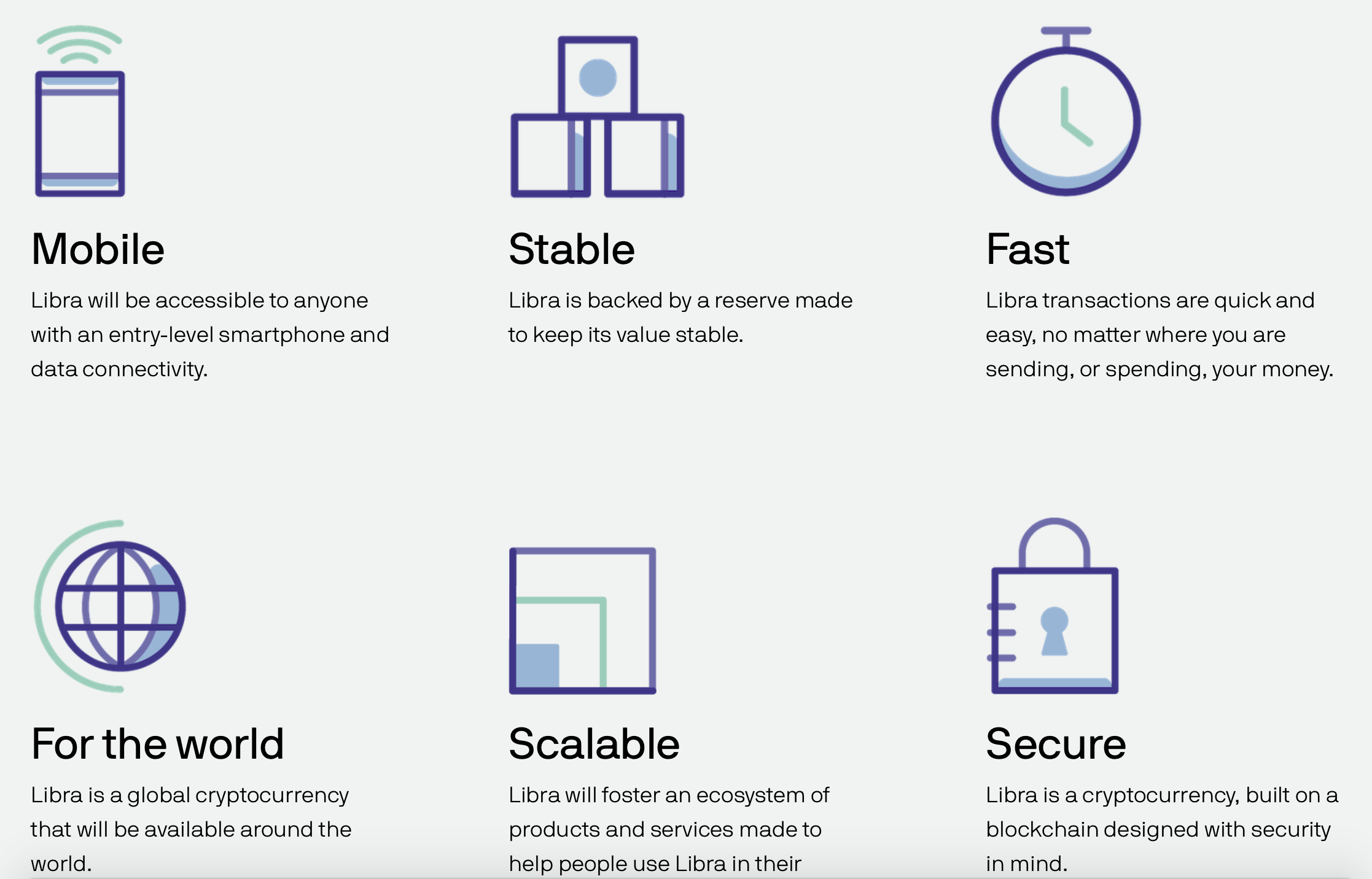News
Facebook Announces Libra Cryptocurrency & Calibra Digital Wallet
Today, Facebook made their scheduled announcement around plans for a “global currency… powered by blockchain” with a planned launch of the first half of 2020. To explain the plans they have launched two websites: Libra.org for the digital currency and Calibra.com for the digital wallet.
Libra Digital Currency
From Libra:
According to the Libra white paper: “Libra’s mission is to enable a simple global currency and financial infrastructure that empowers billions of people.”
Libra consists of three parts:
- Technology: It is built on a secure, scalable, and reliable blockchain – the software that implements the Libra Blockchain is open source — designed so that anyone can build on it;
- Stablecoin: It is backed by a reserve of assets designed to give it intrinsic value – a basket of bank deposits and short-term government securities will be held in the Libra Reserve for every Libra that is created;
- Governance: It is governed by the independent Libra Association tasked with evolving the ecosystem – an independent, not-for-profit membership organization, headquartered in Geneva, Switzerland, to coordinate and provide a framework for governance for the network and reserve and lead social impact grant-making in support of financial inclusion.
These are the founding members of the Libra Association (target is 100 members by the time the currency launches):
- Payments: Mastercard, PayPal, PayU (Naspers’ fintech arm), Stripe, Visa
- Technology and marketplaces: Booking Holdings, eBay, Facebook/Calibra, Farfetch, Lyft, MercadoPago, Spotify AB, Uber Technologies, Inc.
- Telecommunications: Iliad, Vodafone Group
- Blockchain: Anchorage, Bison Trails, Coinbase, Inc., Xapo Holdings Limited
- Venture Capital: Andreessen Horowitz, Breakthrough Initiatives, Ribbit Capital, Thrive Capital, Union Square Ventures
- Nonprofit and multilateral organizations, and academic institutions: Creative Destruction Lab, Kiva, Mercy Corps, Women’s World Banking
The Libra blockchain itself is being built with three requirements in mind:
- Able to scale to billions of accounts, which requires high transaction throughput, low latency, and an efficient, high-capacity storage system.
- Highly secure, to ensure safety of funds and financial data.
- Flexible, so it can power the Libra ecosystem’s governance as well as future innovation in financial services.
- It is built using the new “Move” programming language, which will allow for smart contracts
- More information can be found in their technical white paper
- The Libra testnet is currently open for developers.
The Libra currency is “designed to be a stable digital cryptocurrency that will be fully backed by a reserve of real assets — the Libra Reserve — and supported by a competitive network of exchanges buying and selling Libra.” Libra is not a “peg to a single currency” (i.e. not a USD stablecoin — more on the Reserve policy here).

Calibra Digital Wallet
Users will be able to transact with Libra via Facebook Messenger, WhatsApp, and Calibra (with 365/24/7 support in app):
Although the Libra Blockchain is “pseudonymous and allows users to hold one or more addresses that are not linked to their real-world identity,” in order to use the Calibra wallet, users will need to sign up by verifying identity using a government issued ID.
One of Libra’s goals is to help bank the unbanked, many cannot get banking due to not having a government issued identity.
Businesses will be able to accept Libra by:
“The first version of Calibra will support peer-to-peer payments and a few other ways to pay such as QR codes which small merchants can use to accept payments in Libra. Over time there will be many others including in-store payments, integrations into Point-of-Sale systems, and more.”
Facebook has had many issues with data privacy and security over the past year. Calibra has made a Customer Commitment to keep transaction activity safe and private, so we will see if this is Facebook’s way of regaining trust and building a new system that learns from the one that previously failed users.






You must be logged in to post a comment Login